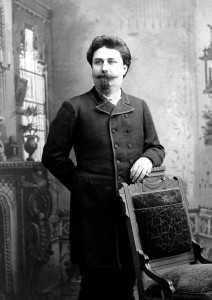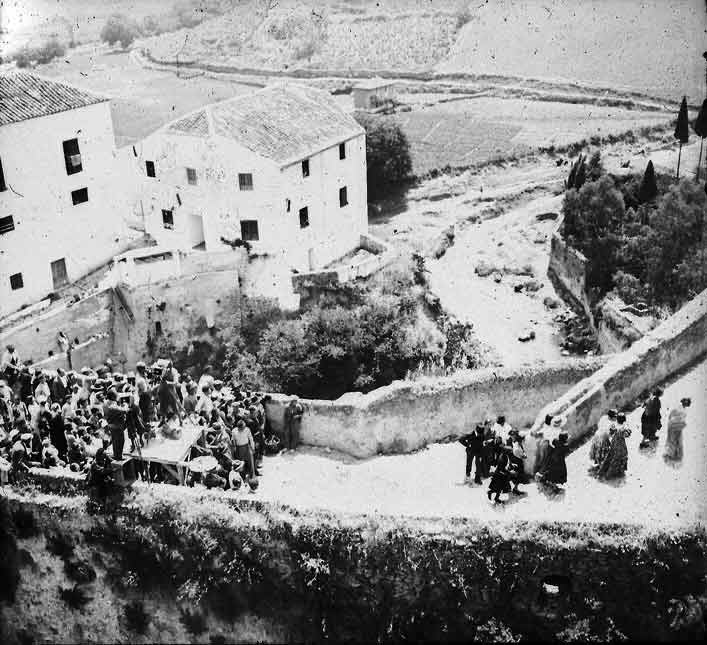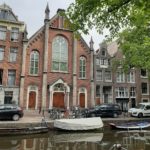Margot Leegwater ~ Sharing Scarcity: Land Access And Social Relations In Southeast Rwanda
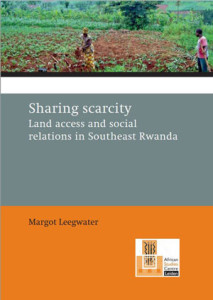 Land is a crucial yet scarce resource in Rwanda, where about 90% of the population is engaged in subsistence farming, and access to land is increasingly becoming a source of conflict. This study examines the effects of land-access and land-tenure policies on local community relations, including ethnicity, and land conflicts in post-conflict rural Rwanda. Social relations have been characterized by (ethnic) tensions, mistrust, grief and frustration since the end of the 1990-1994 civil war and the 1994 genocide. Focusing on southeastern Rwanda, the study describes the negative consequences on social and inter-ethnic relations of a land-sharing agreement that was imposed on Tutsi returnees and the Hutu population in 1996-1997 and the villagization policy that was introduced at the same time. More recent land reforms, such as land registration and crop specialization, appear to have negatively affected land tenure and food security and have aggravated land conflicts. In addition, programmes and policies that the population have to comply with are leading to widespread poverty among peasants and aggravating communal tensions. Violence has historically often been linked to land, and the current growing resentment and fear surrounding these land-related policies and the ever-increasing land conflicts could jeopardize Rwanda’s recovery and stability.
Land is a crucial yet scarce resource in Rwanda, where about 90% of the population is engaged in subsistence farming, and access to land is increasingly becoming a source of conflict. This study examines the effects of land-access and land-tenure policies on local community relations, including ethnicity, and land conflicts in post-conflict rural Rwanda. Social relations have been characterized by (ethnic) tensions, mistrust, grief and frustration since the end of the 1990-1994 civil war and the 1994 genocide. Focusing on southeastern Rwanda, the study describes the negative consequences on social and inter-ethnic relations of a land-sharing agreement that was imposed on Tutsi returnees and the Hutu population in 1996-1997 and the villagization policy that was introduced at the same time. More recent land reforms, such as land registration and crop specialization, appear to have negatively affected land tenure and food security and have aggravated land conflicts. In addition, programmes and policies that the population have to comply with are leading to widespread poverty among peasants and aggravating communal tensions. Violence has historically often been linked to land, and the current growing resentment and fear surrounding these land-related policies and the ever-increasing land conflicts could jeopardize Rwanda’s recovery and stability.
Full text book: http://www.ascleiden.nl/news/sharing-scarcity
Allison Meier ~ The Revolution Has Been Digitized: Explore The Oldest Archive Of Radical Posters
The oldest public collection of radical history completed a digital archive of over 2,000 posters. The Joseph A. Labadie Collection at the University of Michigan Library announced this month that its posters on anarchism, civil liberties, feminism, labor, and other political movements are online for the first time.
“It’s not enough for us to preserve the artifact if people cannot see it,” Julie Herrada, Labadie Collection curator, told Hyperallergic. “Posters are a difficult format because they are fragile and can only withstand so much physical handling, so providing access to these materials while keeping them safe is a complicated process, or it was, until the technology and resources became more readily available to us.”
Read more: http://hyperallergic.com/the-revolution
Slow social work in Rotterdam ~ als antwoord op het tandeloos welzijnswerk
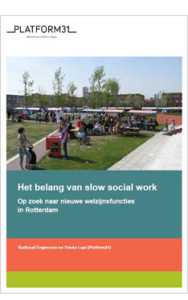 Typisch Rotterdams zoals ze daar het beleid in de sociale sector weer eens stevig op de schop nemen. Deze keer om plaats te maken voor Welzijn Nieuwe Stijl. Platform 31 wijst in het rapport Het belang van slow social work op de tandeloosheid van de opeenvolgende beleidswisselingen in het sociaal domein. En ziet veel meer in een organische verandering met een bescheiden rol voor professionals. Samenlevingsopbouw nieuwe stijl, slow social work op zijn Rotterdams.
Typisch Rotterdams zoals ze daar het beleid in de sociale sector weer eens stevig op de schop nemen. Deze keer om plaats te maken voor Welzijn Nieuwe Stijl. Platform 31 wijst in het rapport Het belang van slow social work op de tandeloosheid van de opeenvolgende beleidswisselingen in het sociaal domein. En ziet veel meer in een organische verandering met een bescheiden rol voor professionals. Samenlevingsopbouw nieuwe stijl, slow social work op zijn Rotterdams.
Werkelijk elke gemeente in ons land worstelt er mee: de transitie, en de transformatie voor wie hogere ambities heeft met het sociaal domein. Het is work in progress, niemand kan voorzien hoe deze omslag in zorg en welzijn precies zal uitpakken. Wel lopen er diverse onderzoeken, evaluaties, enquêtes en worden er statistische gegevens verzameld. Vaak zijn het dagkoersen, cijfers die nog weinig houvast bieden en bespiegelingen die in het gunstigste geval te bestempelen zijn als educated guesses. Dan zijn er nog de succesverhalen, best practices en handzame lijstjes met tips die instant succes in het vooruitzicht stellen. Wat in veel publicaties onvoldoende tot zijn recht komt is de gelaagdheid van de materie, in het bijzonder de dilemma’s en tegenstrijdigheden die gepaard gaan met zo’n omslag. Het is lastig om deze complexiteit op een toegankelijke manier uiteen te zetten.
De publicatie Het belang van slow social work van Platform31 is een mooi tijdsdocument over het Rotterdamse welzijnswerk waar het roer voor de zoveelste keer om moet. De auteurs Radboud Engbersen en Tineke Lupi doken in beleidsrapporten, spraken over een langere periode met bestuurders, ambtenaren, professionals en vrijwilligers. Ze keken ter plekke en spraken met direct betrokkenen. Hun keuze om buurthuizen en religieuze gemeenschappen onder de loep te nemen, is een gouden greep. Daar leggen ze de Achilleshiel van het welzijnswerk bloot, en sprokkelen er de bouwstenen voor een andere benadering: het slow social work.
Retorische beleidstaal
Rotterdam heeft een traditie hoog te houden als het gaat over sociale uitvindingen: Duimdrop, Opzoomeren, Mensen maken de stad, Perron Nul, de inzet van mariniers, het Kwaliteitspanel, de APK-projectgarage, Topscore, om zo maar eens wat voorbeelden te noemen. Een kwart eeuw geleden werd de spraakmakende Rotterdamse versie van sociaal vernieuwen zelfs tot kabinetsbeleid verheven. Engbersen en Lupi volgen het beleidsspoor van de afgelopen 25 jaar en lichten er een rode draad uit die ondanks alle wisselingen in het beleid, steeds weer de kop op steekt: de rol van de burger als gangmaker voor sociale veranderingen. De jongste beleidsrapporten, – met termen als eigen kracht, zelfredzaamheid, burgerkracht en zelforganisatie -, wijzen opnieuw in die richting. En ook uit dit rapport blijkt dat het een hardnekkige kwestie is om de regie echt in handen te leggen van burgers. De auteurs concluderen : ‘…dat de veranderingen in het welzijnswerk zich vooral op institutioneel niveau tussen de overheid en welzijnsinstellingen afspelen.’ Saillant is dat bestuurders en ambtenaren de mentaliteit van de burgers en het gebrek aan kennis van het beleid, als oorzaken aanwijzen waarom de beleidsvoornemens maar niet aarden. En de burgers die wel actief worden, krijgen het verwijt dat ze zich alleen inzetten voor de eigen groep, in plaats van de buurt in zijn geheel. Zoveel wantrouwen jegens de eigen burgers zegt wel iets over het retorisch gehalte van hun beleidsnota’s. Read more
Gonzo: The Life And Work Of Dr. Hunter S. Thompson
(Trailer)
Magnolia Pictures – HDNet Films
Directed by Alex Gibney. Produced by Alex Gibney, Graydon Carter, Jason Kliot, Joanna Vicente, Allison Ellwood, Eva Orner.
Narrated by Johnny Depp.
Glass negatives ~ Spain 1930s
From a collection of glass negatives: Spain 1930s.
We appreciate any information you may have about when and where exactly this photo was taken.
Coursera ~ We Provide Universal Access To The World’s Best Education
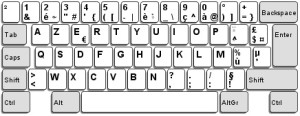 Coursera is an education platform that partners with top universities and organizations worldwide, to offer courses online for anyone to take.
Coursera is an education platform that partners with top universities and organizations worldwide, to offer courses online for anyone to take.
The Coursera experience
It’s simple. We want to help you learn better and faster. That’s why we designed our platform based on proven teaching methods verified by top researchers.Here are 4 key ideas that were influential in shaping our vision:
– Effectiveness of online learning
– Mastery learning
– Peer assessments
– Blended learning
Go to: https://www.coursera.org/


